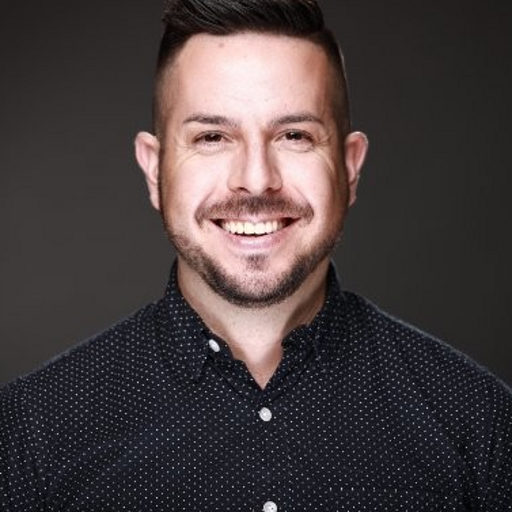January: Endings and Beginnings
- POSTED ON JANUARY 03, 2024

Dear Ones,
Happy Holidays to those who celebrate. I’m grateful to be writing to you from the other side of that cosmic transition from the 2023rd year of the Common Era in the Gregorian calendar to the 2024th year. In other words, Happy New Year.
Calendars are strange things, aren’t they?
Over the millennia, a multitude of cultures have come up with a multitude of ways to measure the passing of time that aligned with the movement (or apparent movement) of various celestial bodies observed in the sky. We look to the heavens to understand our temporal place in the calendar of our culture.
Sounds rather odd when it’s put it that way, doesn’t it?
But at its core, that’s exactly what a calendar is: a guesstimate based on whatever math and astronomy was accessible to our ancestors. And yet, uniformly we place great weight on the creaking machinations of this ancient technology. We mark the annual occurrence of the birth of our loved ones, our relationships, and our unions with parties, social media posts, and baked goods. We celebrate the holidays of our culture on certain defined dates. And recently, for many of us, we commemorate the ending of the year with celebrations and ritual and tradition.
Well, not exactly. The funny thing about the tradition of New Year is that — for many cultures — it isn’t really a celebration of ending at all so much as it is an insistence on beginning again. For many of us, it’s a ritual to ensure that next year is better than this one was. Count down and move on: 5 – 4 – 3 – 2 – 1 – put the pain and strife of the previous year behind us. Future-focused traditions permeate New Year’s rituals around the world. Whether it’s eating grapes in Spain or wearing white in Brazil or smashing pomegranates in Turkey or eating a glücksschwein (pig-shaped candy) in Germany, we love to spend our New Years focused on new beginnings.
But why the relentless focus on the new? With all the chaos and change in the world (see my last blog posts), is it so hard to be with things as they are?
The simple reality is that for the new year to begin, the old year must end. Margaret Wheatley and Deborah Frieze at the Berkana Institute describe this concept in their two-loop theory of change. Speaking of system and organizational change, they offer that for new systems to emerge, the dominant system must die. They quite literally depict this as two loops — one coming to a close while another is just beginning. The new loop cannot exist without the ending of the former. Wheatley and Frieze name those of us charged with shepherding the end of the loop as “hospice workers” and liken these endings to the creation of system “compost” that fertilizes the growth of the new. Change requires that both systems move together to shepherd in emergence.
The writer adrienne maree brown speaks of this in her work as well. She takes inspiration from mushrooms, the great detoxifiers of the natural world. A mushroom finds nourishment in the decay of organic matter. It has the wisdom to see that death provides food and sustenance, and it processes loss to propel growth. brown advocates that movements could use more of this wisdom — to know when it is the time to sunset a project or disband an organization or walk away from a tactic in order to redirect the resources to a more nourishing pathway.
Our work and our world cannot sustain a never ending cycle of creation. Nature requires that we hold death and birth, loss and gain, hospice and compost as two sides of the same coin. So once again, I ask myself (and you all), why is it so hard to be present with this reality?
To be honest, dear ones, I wish I had that answer — now more than ever before. Pardon the abrupt turn, but the challenge of holding this duality feels very present in my life. This past Thanksgiving, we lost our beloved dog Jasmine. Princess Jasmine (also known as Pumpkin, Muffin, and a variety of other nonsensical names) was a constant presence in our lives — and on our couch — for nearly 13 years. And while we’re grateful to have shared so many years of memories with her, her sudden absence continues to take my breath away all these months later. I catch myself grieving in the oddest moments — vacuuming the house and still finding her fur, coming home after a long day away with no greeting at the door, reading on the couch without her head on my lap. And I think to myself, “when am I going to get over this?” as if someday a switch will flip in my mind and the sensation of loss will be gone.
I wonder if, as a society, we have forgotten how to be present with loss. We are so fixated on creation, on productivity, on the new, that we lose sight of how important it is to be hospice workers to the parts of our lives that are ending. We are like mushrooms, and while it may feel challenging, we can find nourishment even in loss. The loss of a pet. The loss of a job. The loss of a year. As adrienne maree brown says, “this too is food.” It is the source material from which the new emerges.
One of our cornerstones at CTI is that people are naturally creative, resourceful, and whole. When it comes to loss, I’ve learned that I am naturally creative and resourceful in the pursuit of being whole. I can be with my grief and face the ending of things so that I can honor the wholeness of life — death and birth, loss and gain, hospice and compost. A year ends and a year begins in the two loops of our lives.
Whether or not you celebrate this new year, I hope that we are all able to make space for the endings and beginnings in our lives as we strive to remember this is what makes us whole.





